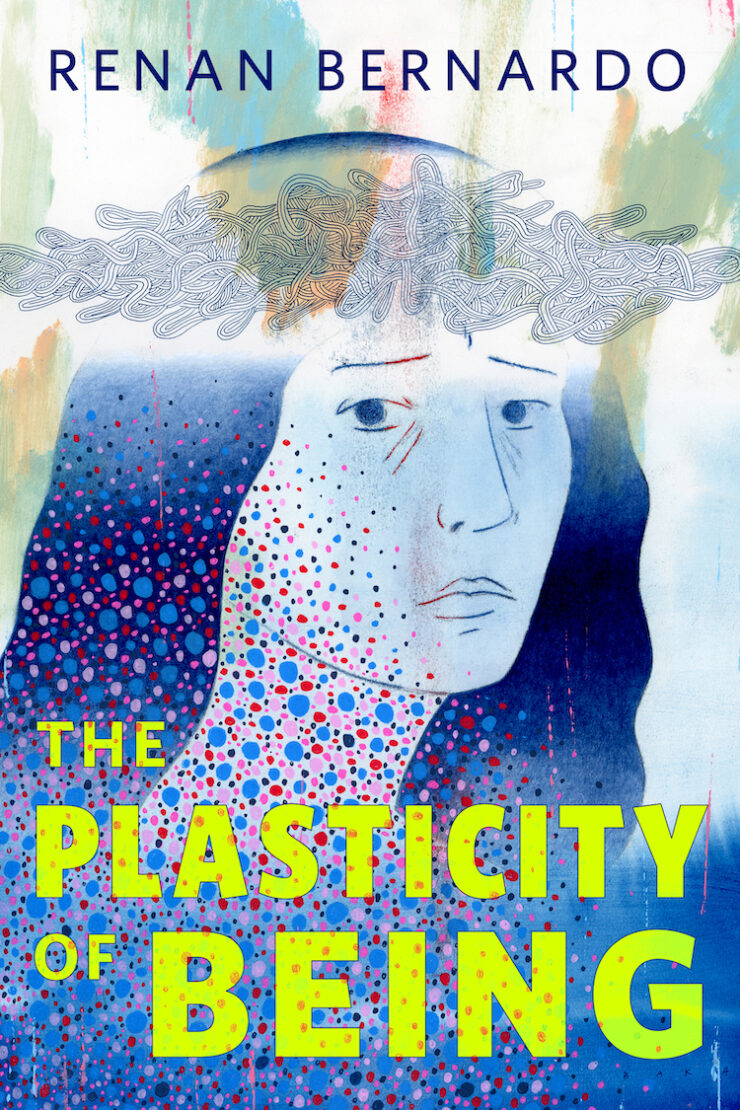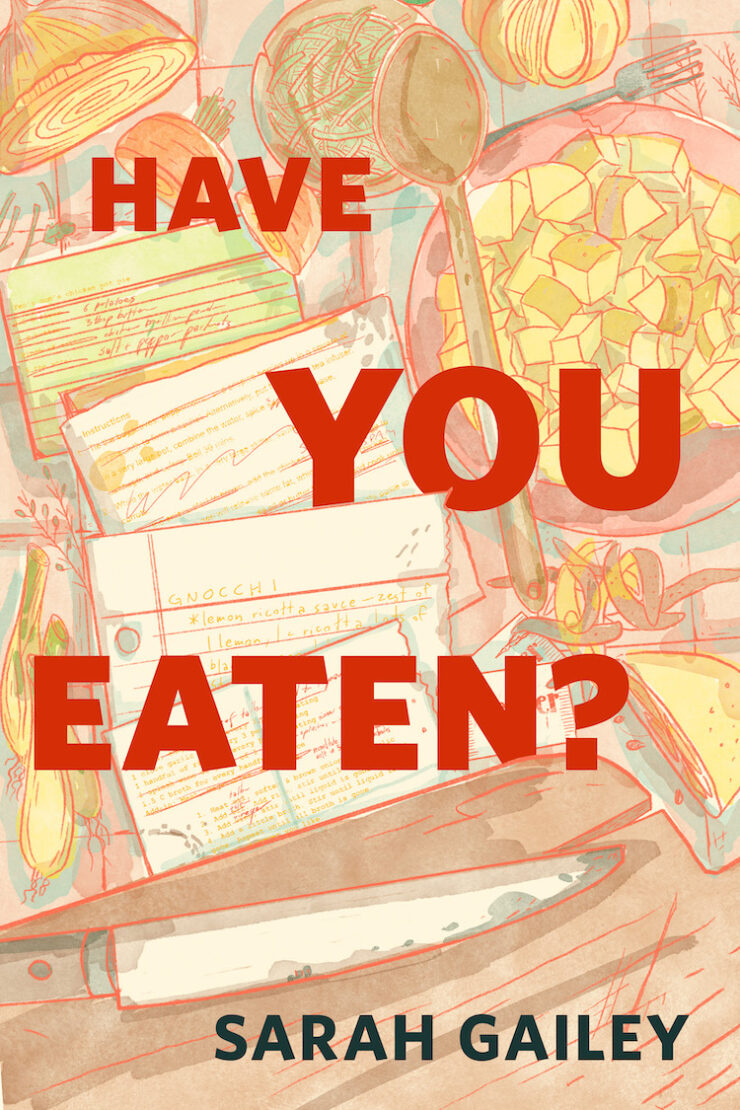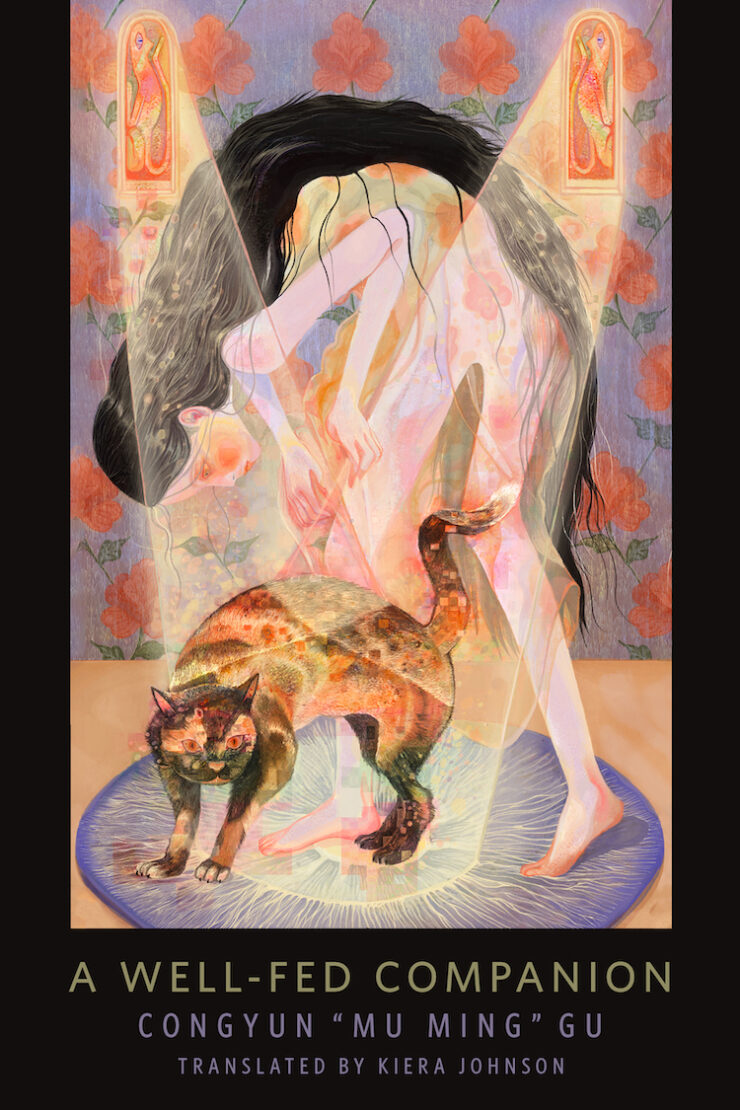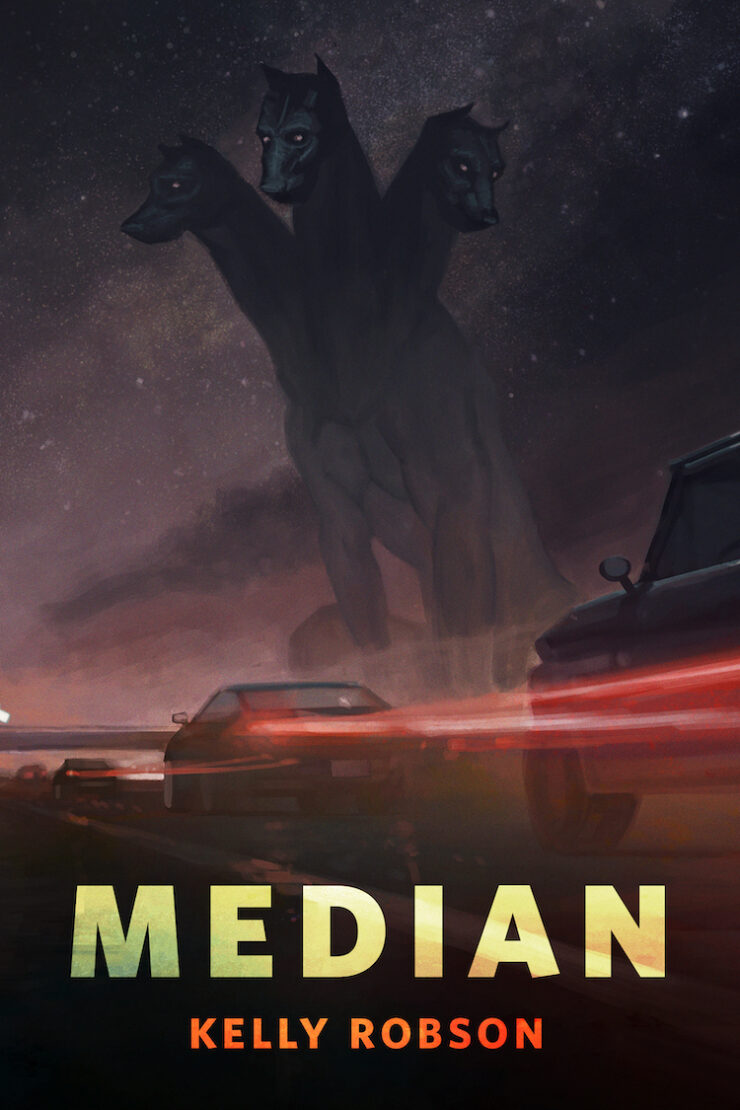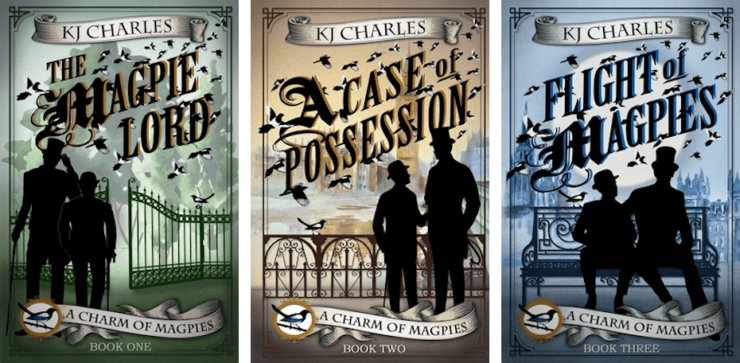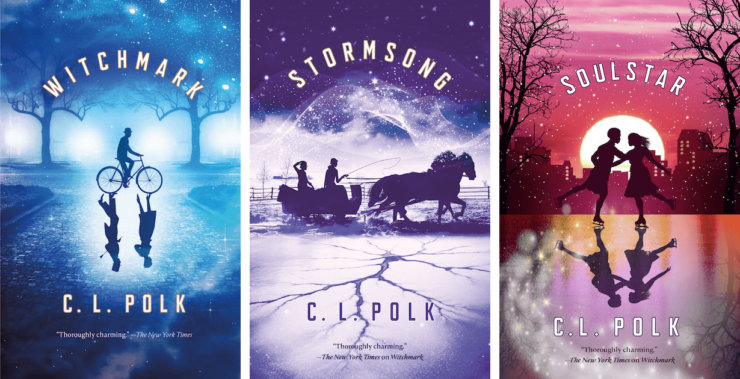Like many of you, I was enticed to give Our Flag Means Death a try from other queer fans tweeting about it. I knew from the moment we saw Blackbeard nursing Stede back to health that I would see it through to the end, but I was also suspicious. Queerbaiting is so pervasive that it’s often the only “rep” we get (looking at you, Supernatural). As much as I wanted to trust Taika Waititi, Rhys Darby, and David Jenkins, and as much as I loved the diversity in the cast, experience has taught me to keep my expectations below rock bottom. I kept waiting for the bait and switch, for the show to swing back toward cisheteronormativity and act as all those little moments were out of control fan headcanons.
I cannot fully explain how ecstatic I was to be proven wrong.
[Spoilers ahoy]
What cinched it for me was how well Jim’s storyline was handled. Although I knew the actor playing Jim is nonbinary (the incredible Vico Ortiz), I also knew that Western media loves doing the “girl who crossdresses as a boy to become a pirate” storyline. So when Jim was revealed to be not-a-man, I was prepared for disappointment. And then, to my utter shock, the crew switched to using they/them pronouns. They did it as if it was perfectly natural and normal. No discussion, no debate, no transphobic remarks or internalized transphobia. In all honesty, I burst into tears. Not because I was upset, but because it was so unexpected and inclusive that I didn’t know what to do with my emotions.
We—queer and trans/nonbinary people—rarely get queercentric narratives in mainstream movies and television. I don’t mean we don’t get movies or TV with queer main characters or storylines, but that when we do they often center cisallohet people. Queerness is shown as alternative or deviant. It’s something non-queer characters constantly comment on or is used as worldbuilding or plot devices.
Bigots, racism, and internalized queerphobia exist in Our Flag Means Death, but those are framed as the deviant experiences. Inclusivity, diversity, and acceptance are the default. With Black Pete, Lucius, Oluwande, Jim, Stede, or Ed, we never have any big coming out scenes or discussions forcing the queer characters to convince the non-queer characters of the validity of their identity. The closest we get is Jim explaining that they aren’t a mermaid, a fabulous twist on the traditional Coming Out Story. The characters get to be queer without any qualifiers or push back. When Stede tells Mary he’s in love with Ed, he isn’t consumed by an identity crisis and she doesn’t guilt him about their marriage or recenter his revelation back onto herself. She just smiles and hugs him. I cried at that scene, too. (For a show this funny, it made me cry a lot more than I expected!) Every chance the show has to focus on cishet characters or wallow in The Struggle™, it instead chooses to be unambiguously and joyfully queer. I don’t think I’ll ever stop being grateful for that.
As of this writing, we still don’t have official word of a season two, but HBO would be foolish to not renew one of the most popular shows on television. In the meantime, if you, like me, are craving more “the grumpy one is soft for the sunshine one”, queer joy, and cozy acceptance, here are some Our Flag Means Death readalikes to tide you over.
Greenhollow Duology by Emily Tesh
Despite the lack of pirates, this series is probably the closest readalike to OFMD, tone-wise. You can’t get much grumpier than Tobias or sunshinier than Henry Silver. Tobias is a literal monster from legend and Henry is the charming love interest who sees through the gruff exterior to the kind man underneath. And there’s also the sinister Bad Boy lurking in the background waiting to mess things up for ol’ Tobias.
A Charm of Magpies series by K.J. Charles
This fantasy romance is darker (and more sexually explicit) than OFMD, but OH MY GOD it’s so good! In the first book, The Magpie Lord, we meet Lord Crane, aka Lucien, an exiled gadabout returning to England to claim his inheritance, and Stephen Day, a prickly magician cop. They’re pulled into each other’s orbits unexpectedly but inextricably. The tone is darker and more serious, but it’s also sexy and entertaining and is everything I love about K.J. Charles’ romances.
Kingston Cycle series by C.L. Polk
Another good match to tone is C.L. Polk’s excellent trilogy, particularly the first book, Witchmark. Set in an Edwardian-esque fantasy land, this series explores what happens in the fallout of a war led by a nation founded upon oppressing its magical citizens. It isn’t as funny as OFMD and spends more time on discussions on exploitation, abolition, and colonialism, but the romances—between Miles and Tristan, then Grace and Avia, and lastly Robin and Zelind—will hit many of the same beats as Stede and Ed, Oluwande and Jim, and Black Pete and Lucius.
Peter Darling by Austin Chant
Ten years and one trans identity later, Peter returns to Neverland. His old rivalry with Captain Hook starts up again, this time with some heat under it. Queer pirate romance? Check! Becoming your true self regardless of what society has to say? Check!
Legends & Lattes by Travis Baldree
If your favorite parts of OFMD were the ones where the audience hangs out with the crew as they tell ghost stories or have a flag-making competition and you’re longing for slice-of-life fics, Legends & Lattes should satisfy. A barbarian orc, Viv, takes one last job before retiring to open a cafe. In her new life, she gains a found family and a lovely slow burn romance. This is an action lite and charm heavy book.
In Deeper Waters by F.T. Lukens
This YA fantasy has an adorably fraught romance between a prince yearning to break free of his family’s low expectations and a merman with a dark past. Prince Tal and merman Athlen get a nice slow burn romance with plenty of emotional constipation, angsty feelings, and misunderstandings that lead to heartbreak. Like all of F.T. Lukens’ YA fantasies, this breezy read is as sweet as cake.
Light From Uncommon Stars by Ryka Aoki
Let’s switch to some science fiction, shall we? Both Shizuka and Lan could fill the “grumpy one” role, but they make such a great pairing that I can’t complain. Light from Uncommon Stars spends a lot of time on the transphobia directed at Katrina and her own internalized transphobia. However, Ryka Aoki still keeps the story centered on Katrina and her feelings. As Shizuka says, “you can’t control how people see you. All you can do is accept it, right?…if you feel that strongly about your truth, then there is no reason to worry about your existence at all.” If that isn’t the TL’DR of Stede’s queer journey then I don’t know what is.
Aetherbound by E.K. Johnston
Set mostly on a space station in the distant future rather than a pirate ship in the early 18th century, Aetherbound isn’t the most obvious choice. But hear me out. Pendt, like Stede, lives an unfulfilling life she desperately wants to escape. When she finally does, she stumbles into a queer found family that give her the validation and support she always wanted. She gets to fight back against oppressive Powers That Be while also learning how to be a caring leader.
The Kindred by Alechia Dow
Kindred is another that doesn’t have an obvious connection. This is also YA sci-fi, although it’s set in Florida in the present day. Joy, who grew up destitute but dreaming on her oppressed alien homeworld, is the serious one while Felix, the rich playboy alien, is the reckless one. But after they’re framed for murder and crashland on Earth, these two cute, queer teens build a found family out of trust and honesty. They help each other to grow and see their own potential.
Alex Brown is an Ignyte award-winning critic who writes about speculative fiction, librarianship, and Black history. Find them on twitter (@QueenOfRats), instagram (@bookjockeyalex), and their blog (bookjockeyalex.com).


